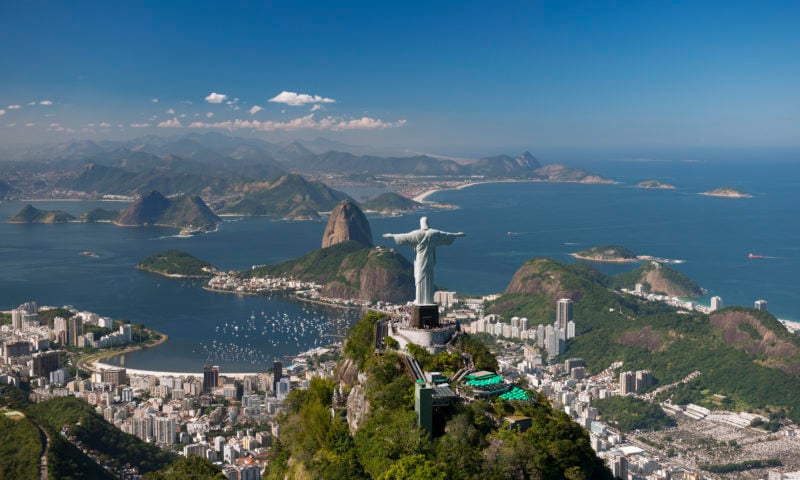
Rio de Janeiro is positioning itself as the tech mecca of Latin America. One US city in particular serves as a great role model.
Large window panes, exterior walls covered with plants and plenty of space for co-working: the three-story headquarters of the crypto asset manager Hashdex is a modern, modular headquarters. But the crypto managers, who say they manage customer assets worth around 500 million euros, are not based in Silicon Valley or Miami. Instead, the house is located just a stone's throw from Rio de Janeiro's famous sandy Ipanema Beach – and there's a reason for that.
For many people, Rio means Copacabana, Sugarloaf Mountain, Carnival, but also high crime and social injustice. But the city is set to develop into the tech hub in Brazil and Latin America. At least that's what Mayor Eduardo Paes, who has been serving his third term in office since 2021, is planning to attract remote workers and the financial companies of tomorrow.
Read too
The city could reinvent itself. The country's stock exchange is located in the metropolis of São Paulo, and the political elite is located in the planned capital Brasilia. And Rio? Struggling with declining population numbers and a bad image, despite hosting the 2016 Summer Olympics. Paes is making a virtue out of necessity. He wants to cut taxes, change laws and districts “to create a 21st century economy on the beach,” as Bloomberg writes.

Why Miami is the role model – and what problems arise as a result
To achieve this, Paes takes its cues from the big ones. Similar to Miami, which is poaching companies from Silicon Valley on a large scale, he is pursuing a strategy of few regulations and many opportunities to attract companies and startups. In order to transform the neglected port area in the Santo Christo district into the tech hub Porto Maravalley, the city is offering companies tax breaks if they participate. Offices for startups and new apartments are to be built in the area this year.
The population in the urban area shrank by 110,000 residents between 2010 and 2022. Mayor Paes wants to help his city grow here too – despite the existing housing shortage. This plan is not working so far. In October 2023, the Brazilian authorities assumed there were around 4,000 remote workers in Rio de Janeiro, as Bloomberg reports.
However, the city was able to celebrate success by hosting the Web Summit in May 2023. The event is one of the most important tech conferences in Europe and took place in Brazil for the first time. The event returns for a second round in 2024.
However, experts also view Paes' plans with concern. There is a risk that the realignment will not solve the city's problems, but will instead suppress them or make them worse. New workers with high purchasing power could increase rents and prices in the city, thereby further fueling the housing shortage. A chain reaction that can also be observed in the Miami model.
Read too
Source: https://www.businessinsider.de/gruenderszene/technologie/wie-rio-de-janeiro-mit-strand-und-sonne-startups-anlocken-will-und-warum-das-schiefgehen-koennte/




